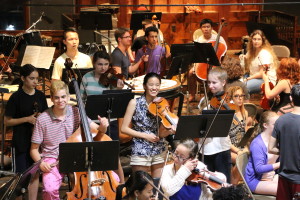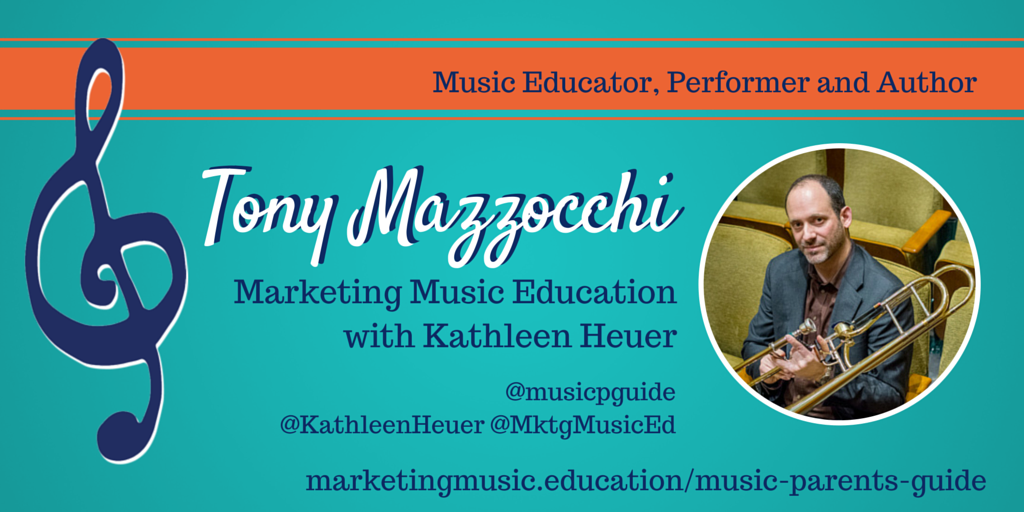 I have had the pleasure of meeting thousands of music educators while speaking at our nation’s music educator conventions this year. These teachers all are consistently and passionately engaged in looking for ways to develop themselves as educators and musicians.
I have had the pleasure of meeting thousands of music educators while speaking at our nation’s music educator conventions this year. These teachers all are consistently and passionately engaged in looking for ways to develop themselves as educators and musicians.
Meanwhile, hundreds of thousands of students learned to play an instrument for the very first time through their school program this year. But if history is any indicator, more than half of these students will quit come next school year.
We can change this course of history — I believe we have a better chance to do this now than at any other time, in fact. This is because we finally are hearing the words “creativity” and “innovation” creeping into conversations regarding education from politicians, administrators, and educators. This is a moment where music education has a chance to enter the limelight as a tool to enhance our children’s educational experience — as long as everyone is on board.
Here are some action steps stakeholders in our schools system need to take in order to ensure all students experience music throughout their K-12 education:
Administrators must schedule music appropriately. What if administrators and educators truly valued how the arts leverage engagement and achievement in school? Some do, and they are the ones who have model school schedules that include daily music instruction for all grade levels. To be clear, these admins and educators are not attempting to turn all of their students into professional musicians. Instead, they believe that for educational experiences in music to produce their intended beneficial effects, students need ample time to experience it. And for the more serious music student, those who do wish to follow their passion should be given enough dedicated time to pursue it, and to move toward proficiency and even mastery — especially in public school. When it is approached with a seriousness of purpose and scheduled effectively, music education can be a powerful medium through which students come to love learning, strive for greatness, and imagine a fulfilling, purposeful life. Schools can — and need to — do better to schedule it into every day.
Teachers must be great pedagogues and great communicators. It’s impossible for me (or anyone) to produce a complete and definitive list of the characteristics of great music teaching. Knowing the qualities of greatness can help teachers strive for the highest standards and help students, parents, and school systems celebrate music as a core part of their curricula. Observing a great music teacher at the top of his or her game is like watching a masterful performance; although infinitely difficult and painstakingly planned, great teaching appears effortless and seamless. Highly effective music teachers keep the concepts at the highest level but the explanations short and incredibly clear, both for their students and the greater school community. They must consistently communicate the power of music education to administrators and fellow teachers, and empower parents to help cultivate their child’s talent at home.
Parents must support their child’s music education. Obviously, this is the main thrust of my book, blog and speaking. Parents who make a long-term commitment to music instruction give children the tools to succeed in music — and therefore in life — it is one of the greatest gifts they can give this year. The more parents begin to treat music as the core subject it is, the more they will investigate easy strategies to support their child’s practice at home in ways that do not disrupt their life too much. Perseverance, commitment, loyalty, and grit are all values I hope that I — and my schools — instill in my children. Teaching and learning these incredible life skills is difficult without parents being on board.
What is the goal of education? I believe that school systems must do everything in their power to create conditions in which students want to and are able to learn. Parents need to continue to advocate for music to be included in school curricula, and teachers must fuel parents with knowledge in order for them to effectively advocate for their programs and help grow a new generation of musician, music lover, and future innovator.
It was wonderful to share my thoughts on music education this year with all who cared to listen. As long as we continue these talks and take action at home, we can build a music community in our schools that transforms our system into the creative learning center our children deserve.








Leave a Comment